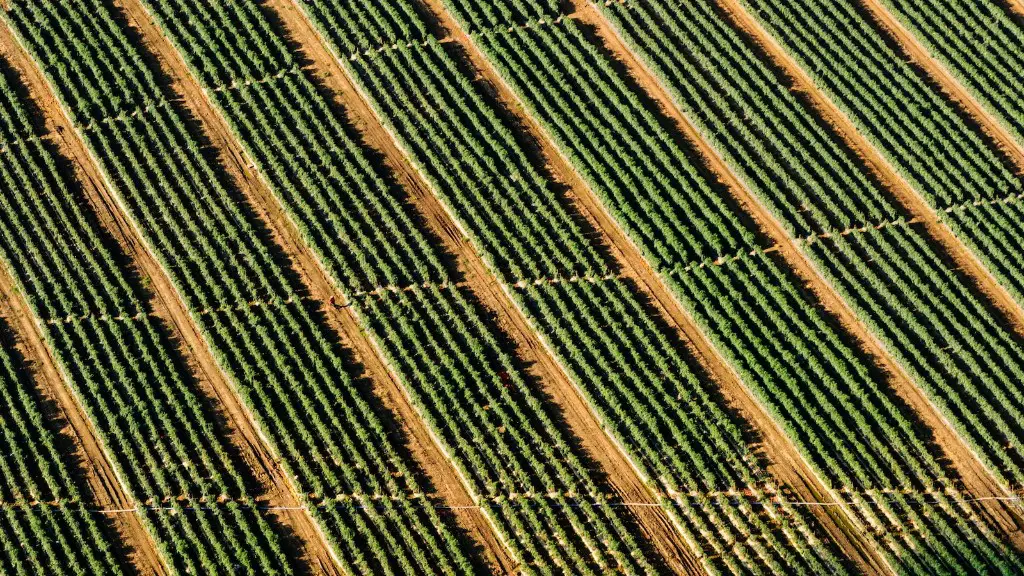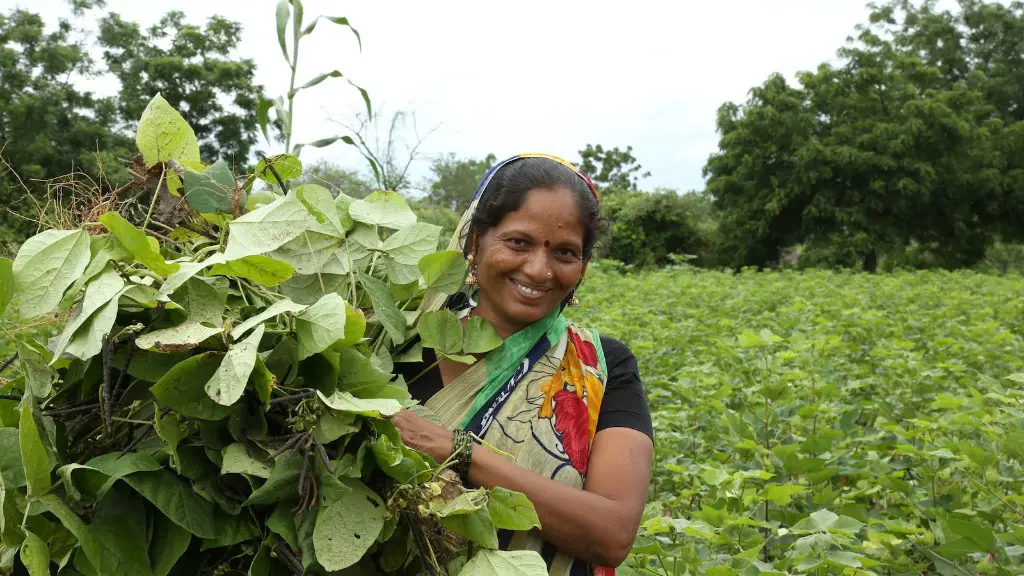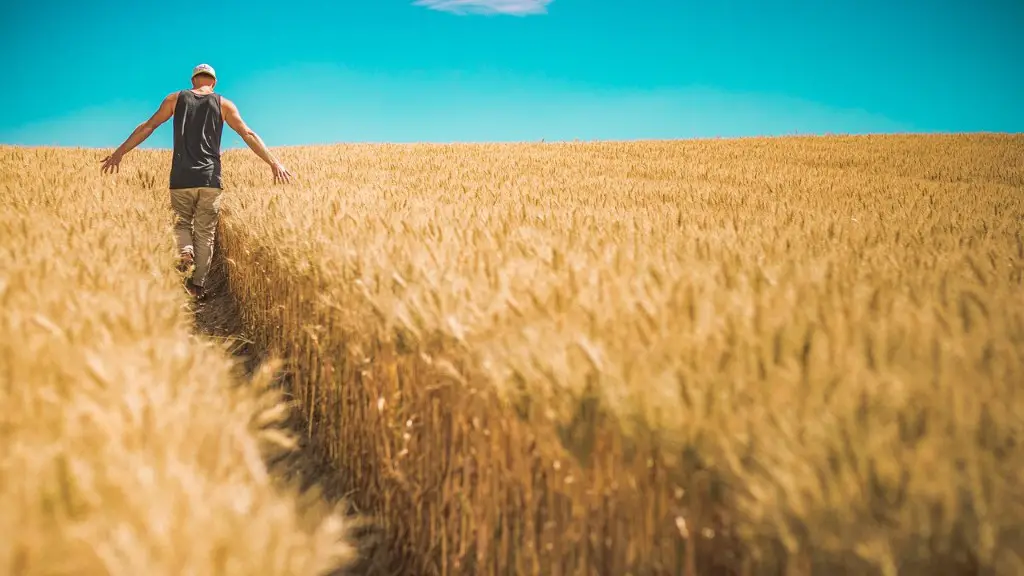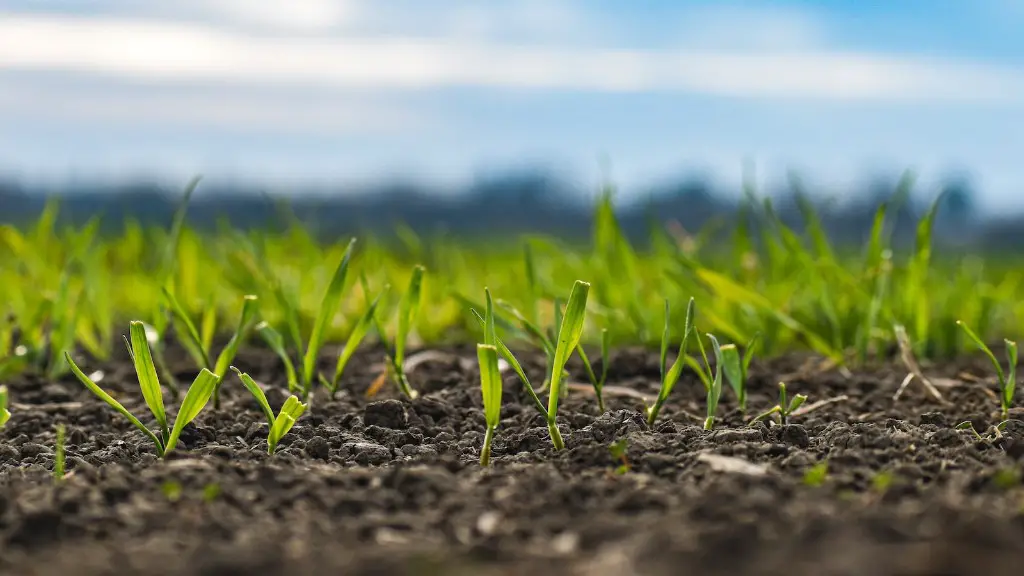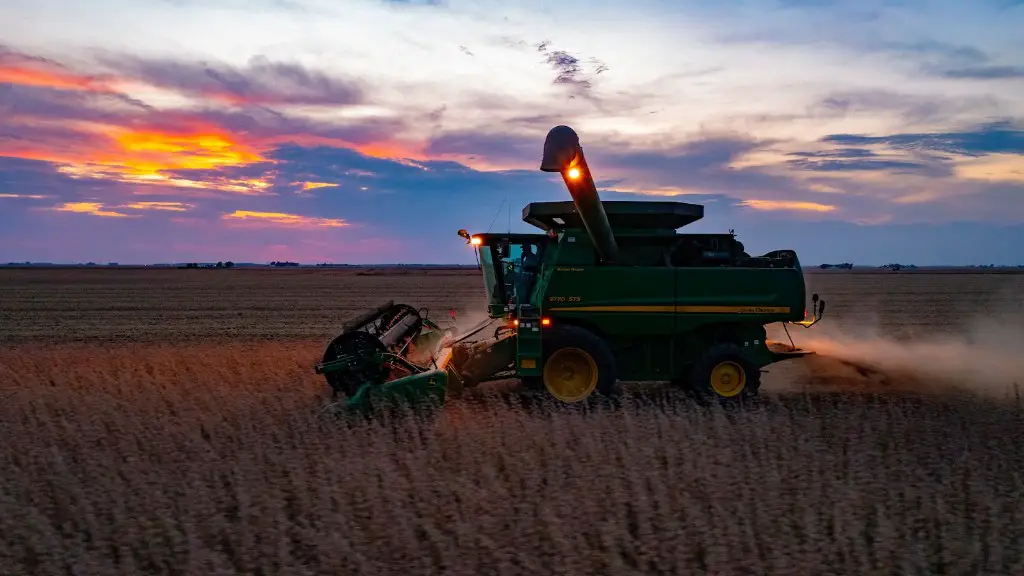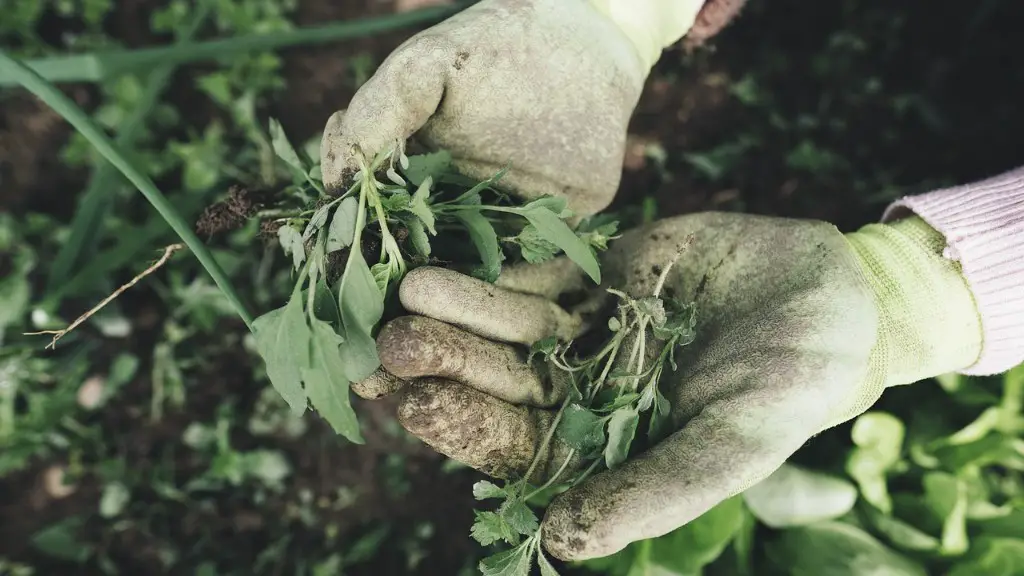Maine is home to a thriving agricultural industry, with a wide variety of agricultural products grown and produced throughout the state. The state’s robust agricultural sector is mainly supported by dairy, beef, vegetables, apples and hay. Maine’s climate and geography also lend itself to many different types of farming and livestock, including organic, grass-fed and free-range. Dairy is the state’s largest agricultural subsector, contributing over $2 billion annually to the economy. It is comprised mostly of milk production, but there are also a number of sheep, goat, and beef farmers throughout the state.
The benefits of Maine’s agricultural sector are bountiful. The state is home to some of the most productive farms and orchards in the US, due to its ideal climate and soil. This results in higher yields and increased profits for farmers. Additionally, Maine’s agricultural products are among the cleanest and most nutritious due to the absence of herbicides, pesticides and other chemicals. The state’s ability to produce large quantities of fruits and vegetables without degrading the land also attracts visitors and businesses to the area.
Maine’s agricultural industry has seen significant growth over the past decade. The state’s growth rate is higher than the national average, due in part to the expansion of organic farming. In addition to organic dairy, egg, and meat production, Maine also produces a wide range of vegetables, fruits and berries. In recent years, there has been a big push for local, sustainably-grown produce. With over 1,000 farmers markets around the state, Maine farmers can connect directly with their consumers, providing fresh, healthy foods to people who may not have access to larger retail stores.
In addition to raw production, Maine has a strong agro-processing industry. This industry is made up of processing and packaging plants where food is processed into different forms, such as canned goods, jams and jellies. Farms also cooperate with processors to produce a variety of value-added products, such as jams, jellies and sauces. The state also has a number of wineries and craft breweries, where local ingredients are used to produce high-quality beverages.
Maine’s agricultural sector is also a major contributor to the state’s economy. Every dollar spent directly in the agricultural industry generates four dollars of economic activity. In addition to providing jobs, the sector also generates state and local taxes. The state of Maine also invests in agricultural projects, providing grants and other incentives to aid in the growth of new farms and businesses.
Organic Farming
Organic farming is becoming increasingly popular throughout Maine and the rest of the US. Organic farming emphasizes the use of natural methods to grow crops and avoid the use of synthetic fertilizers or pesticides. Maine was one of the first US states to pass the Organic Foods Production Act, which requires both organic farmers and processors to maintain certification by the US Department of Agriculture. Proponents of organic farming believe that it is better for the environment, as it eliminates the use of petroleum-based fertilizers and other synthetic chemicals.
Organic farming also produces higher yields than conventional farming practices, due to its emphasis on healthy, nutrient-rich soil. The soil’s high nutrient content results in larger and healthier plants, which can produce higher yields of fruits and vegetables. Additionally, organic farms generally use less water than their conventional counterparts, and their use of natural fertilizers usually improves water quality. Finally, organic farming helps support biodiversity by providing homes and food for a variety of wildlife.
Organic farming is also highly beneficial for consumers. Organic produce is generally fresher and more nutrient-rich than conventionally-grown produce. This is due to the lack of chemical pesticides and fertilizers, which can strip away vital minerals and vitamins. Organic produce is also more flavorful than conventionally-grown produce, as its lack of chemical interference allows it to develop its full flavor potential. Finally, organic farming allows consumers to support local farmers, as it eliminates the high costs associated with transporting produce across long distances.
Livestock
Maine is home to many different types of livestock, including sheep, goats, cows, horses, and a variety of poultry. The state is divided into two major cattle-producing regions: the Down East region and the western part of the state. The majority of the state’s livestock are raised for either beef or diary production, although the state is home to a few sheep and goat farms, as well. The state’s dairy industry is particularly strong, as Maine is home to some of the healthiest and most productive cows in the US.
Livestock production in Maine is highly regulated, as the state has strict guidelines on what animals can and cannot be kept. Dairy and beef producers must adhere to strict guidelines regarding animal welfare and food safety, while non-traditional types of livestock such as goats and sheep are required to be inspected regularly. Additionally, farmers are required to keep accurate records of the animals they keep, and are subject to regular inspections to ensure compliance.
Livestock production in Maine provides a number of economic benefits. The sector contributes significantly to the state’s economy, providing a range of jobs to both rural and urban communities. Additionally, the production of dairy and beef products provides valuable income to farmers and processors, leading to increased investment in economies across the state. Finally, Maine’s strict animal welfare standards result in healthier and heartier animals, leading to increased yields and higher-quality products.
Value-Added Products
Maine’s farmers are constantly looking for new ways to boost profits. One of the most successful strategies has been the production of value-added products, such as jams and jellies. The state has a strong agro-processing industry, which uses local ingredients to produce a range of value-added products. This industry provides jobs to rural communities while providing consumers with high-quality, locally sourced products.
The state also invests heavily in value-added products, providing grants and other incentives to farmers and processors. These investments help increase the production of value-added products and boost small business investment in the sector. Additionally, the state provides marketing services to farmers and processors, allowing them to better reach their target consumers.
The production of value-added products has been highly successful in Maine. The sector has grown significantly, resulting in a number of small businesses around the state. It has also resulted in higher-quality products, as value-added products are typically made with fresher and more nutritious ingredients. Finally, it has given Maine farmers the opportunity to engage directly with their customers, allowing them to form meaningful relationships with their consumers.
Maine Farms and Markets
Maine is home to over 1,000 farmers markets, which provide customers with locally grown, sustainably-produced foods. These markets have been around for centuries, and they are essential to the state’s agricultural sector. Most farmers markets accept SNAP and WIC benefits, allowing a greater proportion of the population to access fresh and nutritious food.
The markets also foster closer relationships between farmers and consumers. They allow farmers to engage directly with customers, providing an opportunity to explain their methods and demonstrate the benefits of local food production. Additionally, markets provide customers with a wider range of products, as many farmers bring a variety of fruits and vegetables to the market, as well as canned and value-added products.
The markets also support Maine’s small farms. Many smaller farms would be unable to compete with large supermarkets on price, but the markets allow them to sell their produce directly to the consumer. This allows them to increase their profits and invest in better farming methods, resulting in healthier and more bountiful harvests. Furthermore, the markets provide an opportunity for farmers to network with other producers, enabling them to share information and develop cooperative businesses.
Maine’s Agricultural Support System
The state of Maine provides significant support to its agricultural sector, in the form of grants, training, and other programs. The state provides grants to farmers and processors, helping them to purchase new equipment, expand operations, and cover other start-up costs. The state also invests in research and development, providing resources and expertise to help further developed the sector.
Maine also has an extensive training program for new producers. The program covers a variety of topics, such as food safety, animal welfare, business management and marketing. The training is provided to farmers, as well as to agro-processors and value-added producers. Additionally, the state provides financial assistance for farmers who wish to enroll in the program.
The state also helps to promote the agricultural sector. Many organizations and publications, including the Maine Agriculture Department and the Maine Farm Tenant Association, provide information to the public about agriculture in Maine. Additionally, the state hosts a number of events, including agricultural fairs and farmers’ markets, which draw in visitors from around the state.
Maine’s agricultural sector is essential to the state’s economy and provides many benefits to all its constituents. From the production of dairy and beef products to value-added products, the sector provides jobs, generates revenue, and supports small, local businesses. Maine’s robust support system ensures that farmers, processors, and markets can continue to thrive in the state’s unique and vibrant agricultural landscape.
